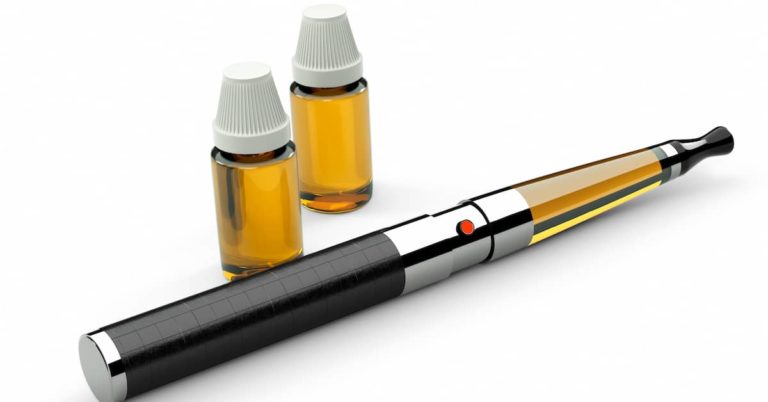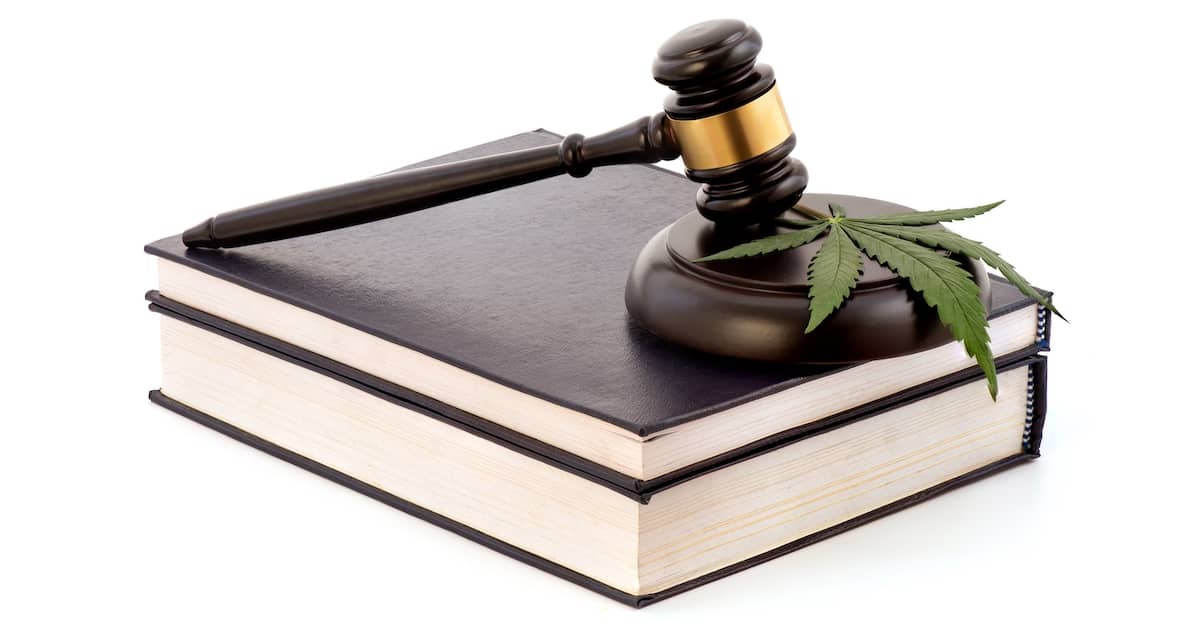
FDA to Gain Authority over Synthetic Nicotine Products
On March 15, 2022, President Biden signed into law a large government spending bill that in large part provides billions of dollars in aid for Ukraine, along with military and government spending (the “Bill”). However, this law also includes provisions providing the Food & Drug Administration (“FDA”) with jurisdiction over synthetic nicotine products not derived from the tobacco plant, which previously was outside the scope of tobacco regulations.1 Indeed, the FDA currently only has authority over nicotine products derived from tobacco plants. However, due to the recent rise in popularity among minors of e-cigarettes using synthetic nicotine, such products have caught the attention of Congress and the FDA alike.
By way of background, effective August 2016 the “Deeming Rule” placed all e-cigarettes under the authority of the FDA and such products required pre-market authorization as set out by the Federal Food, Drug, and Cosmetic Act (“FDCA”).2 The FDA from 2016 to 2020, declined to take enforcement actions against e-cigarette companies that failed to obtain such pre-market authorizations.3
On January 1, 2020, the FDA announced that no e-cigarette products had received pre-market authorization as required by the FDCA and therefore all products were illegally marketed in the US at the time (the “Notice”).4 The FDA also announced a change in its enforcement policy regarding flavored cartridge-based e-cigarettes.5 This change in policy was fueled by the increase of minors using e-cigarettes with fruity or candy flavoring. For those e-cigarette manufacturers operating without requisite pre-market authorization, FDA provided 30-days from the date of its Notice until it would begin taking enforcement actions against them. In addition, the FDA makes clear that enforcement action will extend to (1) flavored cartridge-based Electronic Nicotine Delivery Systems (ENDS) excluding tobacco or menthol flavors; (2) ENDS products for which the manufacturer has failed to take adequate measures to prevent minors’ access; and (3) any ENDS product that is targeted to minors or likely to promote the use of ENDS by minors.6 Notably, restrictions on flavored ENDS do not apply to products that are disposable as they lack the cartridges that the FDA specifically calls out in its Notice. The FDA explained the reason for this exclusion is because cartridge-based ENDS are most popular among minors and therefore the Notice addresses the public health concern in preventing minor use of such ENDS products.7
Notably, the FDA excluded tobacco/menthol-flavored products from enforcement actions because including them within the scope of enforcement would fail to address the separate public health interest in encouraging tobacco-addicted adult users to use such products as cessation tools for traditional cigarettes.8 Among the companies that were exempt from these restrictions was Cool Clouds Distribution Inc., known as Puff Bar.
The FDA’s announcement expressly warned that should the agency “become aware of an increase of youth using any other flavored products (both cartridge-based or otherwise), the agency will take additional steps to address youth use of those products if necessary.”9 Puff Bar flavored disposable e-cigarettes started to become popular amongst minors as a result of the FDA’s January 2020 restrictions on cartridge-based e-cigarettes.10 In response to Puff Bar’s increasing popularity, the FDA issued warning letters six months later in July 2020, to Puff Bar and nine other e-cigarette companies requiring the companies to remove their flavored disposable e-cigarettes and “youth-appealing e-liquid products” from the market because the products did not have the required pre-market authorization by the FDA.11
In early 2021, Puff Bar re-entered the market using a synthetic nicotine formula rather than tobacco-derived nicotine which placed the product outside of the FDA’s tobacco regulations. Puff Bar’s synthetic nicotine products still had the fruity or candy flavoring popular amongst minors that the FDA targeted in 2020. Other e-cigarette companies then followed Puff Bar’s synthetic nicotine approach to circumvent FDA restrictions on their products.
As a result, Puff Bar and such other e-cigarette companies that developed flavored e-cigarettes with synthetic nicotine have been characterized as “some bad actors [attempting] to avoid FDA regulation by pivoting to using synthetic nicotine in their product” by the Chairman of the Energy and Commerce Committee Frank Pallone, a leader in congressional efforts to address youth vaping in the US.12 In response to flavored synthetic nicotine, Congress has now included a revision to the FDCA to provide the FDA with authority over such synthetic nicotine products in the upcoming H.R. 2471 bill.13
Specifically, the H.R. 2471 amends the definition of “tobacco products” provided in the FDCA – previously only covering those products made or derived from tobacco – to now include products “containing nicotine from any source.”14 If enacted into law, the revisions would now bring all synthetic lab-created nicotine products under the regulatory umbrella of the FDA and effectively close the synthetic nicotine “loophole.” However, the law also establishes a transitionary period for all synthetic nicotine products. Under the new framework, manufacturers of synthetic nicotine products would be required to receive authorization from the FDA within 60 days of the law’s enactment; any product not authorized by the agency within 120 days of the enactment would be illegal.15
Both Congress and the FDA have made it clear that e-cigarettes with flavors likely to target minors will continue to be under the authority of the FDA. Continuing to find creative workarounds with FDA restrictions is not likely going to be a successful path forward for e-cigarette manufacturers. Given the current regulatory framework and congressional concern for public health, it is unlikely that any e-cigarette with flavors popular amongst minors receiving pre-market authorization. With this in mind, e-cigarette manufacturers should be prepared to change their business models within 120 days of the enactment of this new bill as necessary to comport with the new definition of “tobacco products.” Those manufacturers who have not already done so should seek experienced regulatory counsel on FDA pre-market authorization applications. Additionally, in the event the FDA rejects a manufacturer’s application, companies need counsel who can help their products adapt and become compliant under the FDA restrictions. In all cases, enforcement frameworks within the US are likely to evolve as curbing youth usage of e-cigarettes is a priority for the US government on both the federal government and state levels and likely will continue to be so for years to come.
1 H.R. 2471 (available at https://rules.house.gov/sites/democrats.rules.house.gov/files/BILLS-117HR2471SA-RCP-117-35.pdf); 21 U.S.C. § 387a.
2 21 U.S.C. § 387j; FDA, FINAL RULE, (May 10, 2016) (available at https://www.federalregister.gov/documents/2016/05/10/2016-10685/deeming-tobacco-products-to-be-subject-to-the-federal-food-drug-and-cosmetic-act-as-amended-by-the).
3 See FDA News Release (Jan. 1, 2020) (available at https://www.fda.gov/news-events/press-announcements/fda-finalizes-enforcement-policy-unauthorized-flavored-cartridge-based-e-cigarettes-appeal-children).
4 FDA News Release (Jan. 1, 2020) (available at https://www.fda.gov/news-events/press-announcements/fda-finalizes-enforcement-policy-unauthorized-flavored-cartridge-based-e-cigarettes-appeal-children).
5 Id.
6 Id.
7 Id.
8 FDA News Release (Jan. 1, 2020) (available at https://www.fda.gov/news-events/press-announcements/fda-finalizes-enforcement-policy-unauthorized-flavored-cartridge-based-e-cigarettes-appeal-children).
9 https://www.fda.gov/news-events/press-announcements/fda-finalizes-enforcement-policy-unauthorized-flavored-cartridge-based-e-cigarettes-appeal-children.
12 Energy and Commerce Committee Chairman Frank Pallone, Jr. Press Release (March 9, 2022) (available at https://energycommerce.house.gov/newsroom/press-releases/pallone-applauds-inclusion-of-provision-to-close-synthetic-nicotine-loophole).
13 H.R. 2471 (available at https://rules.house.gov/sites/democrats.rules.house.gov/files/BILLS-117HR2471SA-RCP-117-35.pdf); 21 U.S.C. § 387a.
14 Id.
15 Id.



